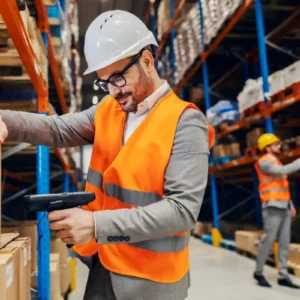Effective waste management is essential for building resilient urban landscapes. It involves handling waste, minimizing waste generation, promoting recycling, and repurposing materials. Historically, waste management practices were dominated by landfilling, incineration, and early recycling.
However, as the population grew, these practices had to be reassessed based on sustainability goals. By optimizing waste handling and processing, cities can reduce their environmental impact and make substantial progress toward urban sustainability. Studies have shown that robust recycling programs can significantly lower carbon dioxide emissions.
Contents
- 1 Emerging Technologies in Waste Management
- 2 Strategies for Reducing Waste at the Source
- 3 Waste Management and Circular Economy
- 4 Case Studies of Effective Waste Management
- 5 Challenges and Solutions in Urban Waste Management
- 6 The Future of Waste Management
- 7 Educational and Community Involvement in Waste Management
- 8 How Businesses Are Revolutionizing Waste Management
- 9 Tips for Going Green with Personal Waste Management
Emerging Technologies in Waste Management
Within the waste management sector, cutting-edge innovations are game changers. Technologies like the Internet of Things (IoT) connected waste bins make waste collection more intelligent and responsive.
These bins can communicate real-time data to waste management teams, ensuring that pickups are done as needed rather than on a pre-scheduled routine. It leads to optimized routes, reduced fuel consumption, and minimizes waste container overflow in public spaces, accommodating vibrant, clean urban environments.
The breakthroughs in robotics and AI technology are also enhancing the capabilities of sorting facilities. Sensor-based sorting systems can now meticulously separate materials, bolstering recycling rates and the purity of recyclable streams. By implementing these intelligent technologies, municipalities can maximize their sorting efficiency, which supports the development of the recycling industry and the secondary materials economy.
Embedding AI into the waste management framework does more than streamline operations – it can predict waste generation patterns and, thus, assist urban planners in devising proactive and data-driven waste reduction strategies. This, when supported by public policy and community participation, forms a formidable response to the growing waste challenges faced by modern cities.
Strategies for Reducing Waste at the Source
Proactive waste reduction starts at the source. Measures to minimize single-use plastic consumption, which often ends up in water bodies and landfills, are gaining traction globally. The international movement towards banning plastic bags and straws is just the tip of the iceberg.
Moreover, tapping into the potential of community composting programs can effectively divert a significant volume of organic waste from landfills. These programs contribute to waste reduction, enhance soil health, and promote sustainable agriculture by reclaiming nutrients from disposed food scraps and garden waste.
Educational campaigns serve as vital catalysts for change, equipping society with knowledge and tools to make informed decisions about waste. Ongoing initiatives in schools and municipalities underscore the connection between consumer actions, such as excessive packaging and waste generation, and the broader environmental impacts. This holistic educational approach empowers individuals to take action, whether through mindful purchasing, proper sorting, or advocating for waste-minimizing policies.
Moreover, governments wield influential policy tools that can drive systemic change. Imposing packaging regulations on manufacturers, incentivizing the use of biodegradable materials, and implementing waste-related tariffs exemplify how policy can align with waste reduction objectives. The transformation is palpable when citizens are enlightened about the importance of their role within the larger waste management ecosystem.
Waste Management and Circular Economy
The shift towards a circular economy is heralded as the new paradigm in sustainable development. The essence of a circular economy is rooted in the design, use, and lifecycle of products aimed at eliminating waste through the continual use of resources. Sustainable waste management plays an integral role in this model, acting as the custodian of resources that can otherwise be lost to disposal.
Businesses and industries increasingly recognize their part in this closed-loop system by adopting zero-waste ambitions. These enterprises focus on sustainability, from product design that facilitates end-of-life recycling to instilling corporate policies that encourage resource conservation throughout operational processes. Initiatives like extended producer responsibility (EPR) obligate product-makers to manage the disposal of their products, thereby fostering a culture of accountability and innovation towards waste management.
Further information on the practical application of circular economy principles in the real world can be found in the field’s current research. When products are designed with recycling in mind, the need for raw materials diminishes, and the volumes of waste produced are significantly reduced. Thus, waste management transitioned from an end-of-pipeline service to a crucial element in the sustainable product lifecycle
Case Studies of Effective Waste Management
Insightful case studies illustrate how successful waste management can be achieved with a strategic combination of policy support, technological aid, and community engagement. Cities that have embarked on ambitious composting programs are setting benchmarks for others to follow.
These cities are turning waste into a valuable community resource by offering curbside collection of compostable materials and incentivizing residents through discounted compost purchases for gardening. Similarly, global leaders in recycling have meticulously developed the infrastructure for resource recovery, such as advanced sorting facilities and comprehensive curbside recycling programs that effectively boost the participation of citizens.
To stay abreast of innovative practices, it is valuable to look at the recent news in waste management, which might include insight from different international case studies, illuminating diverse yet effective waste management practices. From policies that mandate meticulous waste sorting by households to creating economically viable markets for recycled materials, these case studies act as learning modules for cities striving to perfect their waste management systems.
Challenges and Solutions in Urban Waste Management
The burgeoning population of urban areas presents numerous challenges for traditional waste management systems. With space at a premium and increased waste production, cities must seek innovative solutions to collect, process, and dispose of waste without aggravating the already stressed urban environment.
Forward-thinking cities are exploring the potential of underground pneumatic waste collection systems, eliminating the need for multiple waste collection points and reducing truck traffic and the associated pollution. Additionally, new policy frameworks are emerging to address the systemic challenges of urban waste management, encouraging the adoption of waste-to-energy technologies and incentivizing businesses and households to reduce their waste footprint.
The Future of Waste Management
As we look ahead, the trajectory of waste management is increasingly tied to sustainability and innovation. Sophisticated waste management systems that utilize data analytics to optimize operations will become standard. Regarding policy, there is a growing imperative to integrate waste management strategies within broader environmental and climate change initiatives to foster a holistic approach.
The interdependencies between waste management and climate resilience are deepening, with municipal strategies expanding to encompass comprehensive approaches that account for waste generation’s influence on climate change and vice versa.
Educational and Community Involvement in Waste Management
Community participation remains at the heart of successful waste management strategies. Empowering communities through education and involving them in decision-making can lead to more effective and enduring solutions.
Educational institutions are playing an increasingly pivotal role by integrating waste management into their curricula, fostering an early appreciation for sustainability. Likewise, community programs involving residents in waste reduction efforts have instilled a sense of stewardship and collective responsibility towards local environments.
How Businesses Are Revolutionizing Waste Management
In the private sector, there is a visible trend of companies redefining their waste strategies to align with environmental targets. It involves enhancing operational procedures to minimize waste and adopting innovative approaches to transform waste into resources.
Startups, for example, are exploring new frontiers in waste-to-energy conversion, setting the stage for a future where waste is seen not as an intractable problem but as a valuable energy commodity. The financial incentives for businesses to tread this path are clear; by reducing waste, they contribute to environmental goals, realize cost efficiencies, and build a positive brand image in increasingly eco-conscious markets.
Tips for Going Green with Personal Waste Management
On a personal front, individuals have various avenues to make a tangible impact on waste reduction. Starting with a conscious effort to reduce disposable item usage, individuals can substantially decrease the volume of waste they generate. Embracing the reuse of items, opting for products with minimal packaging, and supporting brands that demonstrate environmental accountability can drive demand for sustainable products and practices.
Additionally, by utilizing local recycling resources and actively participating in community waste management programs, residents can ensure their waste is handled responsibly, reinforcing the more significant movement toward sustainability.





